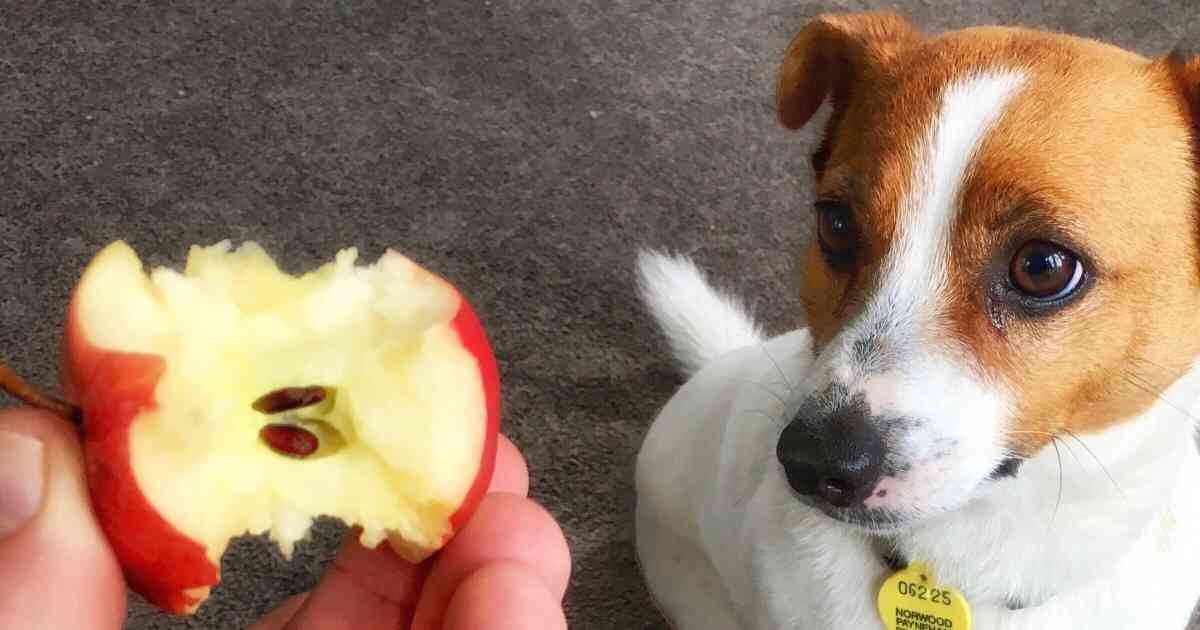Dogs should not eat apple cores as they can be a choking hazard and contain cyanide. Apple cores can pose a risk to dogs due to their small size and the presence of potentially harmful substances.
Apples are a popular and healthy snack for humans, but can dogs enjoy this fruit as well? While dogs can safely eat apple slices, it’s important to understand the potential risks associated with feeding them apple cores. We’ll explore why dogs should avoid consuming apple cores and what alternatives are available for their snacking pleasure.
By being aware of these facts, you can ensure the well-being of your canine companion and make informed decisions about their diet. So, let’s delve into the topic and find out why apple cores may not be a suitable treat for our furry friends.
Health Risks Associated With Apple Cores For Dogs
Apple cores can pose health risks for dogs due to the possibility of cyanide poisoning. Cyanide, found in apple seeds, can be toxic to dogs and cause severe symptoms. Ingesting apple cores can also lead to choking hazards or potential blockages in a dog’s digestive system, which require immediate veterinary attention.
Therefore, it is crucial for dog owners to avoid giving their pets apple cores to prevent any potential harm. Instead, it is generally recommended to remove the apple core and seeds before feeding apples to dogs, ensuring their safety and well-being.
Being aware of these risks and taking appropriate precautions can help to keep our four-legged friends healthy and happy.
Signs To Look Out For In Case Of Apple Core Consumption
Consumption of apple cores by dogs may result in various signs to be wary of. The first indication may be vomiting and diarrhea experienced by your furry friend. It is crucial to monitor their bowel movements closely. Additionally, dogs may exhibit abdominal discomfort and distention after ingesting apple cores.
Look out for any signs of pain or discomfort in their tummy area. If you observe any of these symptoms, it is advisable to seek veterinary assistance promptly. Pets are unable to digest the tough core of an apple like humans can, which may lead to these undesirable effects.
Remember to always remove the core before offering apples to your canine companion and prioritize their health and well-being. Veterinary consultation is essential when necessary.
Safe Alternatives To Feeding Apple Cores To Dogs
Dogs can safely enjoy apple slices without seeds as an alternative to apple cores. Fresh apples are a nutritious and crunchy treat for your furry friend. However, it’s important to remove the seeds as they contain trace amounts of cyanide, which can be harmful to dogs.
You can also make apple puree or use apples in homemade treat recipes to add flavor and nutrients to your dog’s diet. Just make sure to avoid any harmful ingredients like chocolate or artificial sweeteners. Remember, moderation is key when feeding your dog fruit treats, as too much can upset their stomach or contribute to weight gain.
Taking these precautions will ensure that your dog can safely enjoy the taste and benefits of apples without any risks to their health.

Credit: www.walkervillevet.com.au
Conclusion
It is best to avoid feeding your dog apple cores. While the flesh of the apple can be a healthy and tasty treat for your furry friend, the seeds and core can pose potential dangers. The seeds contain a compound called amygdalin, which can break down into cyanide when ingested.
Cyanide is toxic to dogs and can lead to symptoms such as vomiting, diarrhea, and difficulty breathing. Additionally, the core itself can be a choking hazard or cause gastrointestinal blockages if swallowed whole. It’s always important to prioritize your dog’s safety and well-being by providing them with appropriate and dog-friendly snacks.
If you want to share the taste of apple with your pup, make sure to remove the core and seeds and offer them only the flesh in small, bite-sized pieces. Remember, the health and happiness of your furry companion should always be a top priority.
